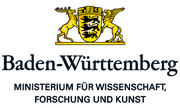Lehrveranstaltungen Sommersemester 2024

©Sandra Meyndt
Philologische Fakultät
Black Media Studies
Haupt-/Masterseminar - Englisches Seminar - Prof. Dr. Sieglinde Lemke
Black media studies explores the connection between media culture and racial politics. It presents one of the most vibrant and longstanding areas of film and media studies. This seminar familiarizes students with the historic achievements in Black filmmaking ranging from Blaxploitation movies in the 70s to classics like Spike Lee’s Do the Right Thing in the 80s and on to contemporary films with an all-Black cast such as Barry Jenkins’ Moonlight. We will closely examine genre conventions and stylistic nuances in a Sci-Fi thriller (Ryan Coogler’s Black Panther), independent queer film (Dee Rees’ Pariah), historical drama (Lee Daniel’s Precious; Ava DuVernay’s Origin), and Jordan Peele’s yet-untitled 2024 horror movie. Students will learn to analyze Black cinematic representations as well as a select number of paintings and song lyrics to examine how black media has challenged the onslaught of racial othering by deploying different visual and aesthetic strategies.
La France Noire. Geschichte und Gegenwart afroeuropäischer Literatur und Kultur in Frankreich
Übung - Romanisches Seminar - PD Dr. Urs Urban
Noch keine hinterlegten Inhalte.
Sprache und Kolonialismus
Proseminar - Deutsches Seminar - Lena Aristarkhova-Schmidtkunz
Der deutsche Kolonialismus hat tiefe Spuren hinterlassen – im städtischen Raum, im kollektiven Gedächtnis und in unserer Sprache. In diesem Seminar beschäftigen wir uns mit der Geschichte des europäischen Kolonialismus aus sprach(wissenschaft-)licher Perspektive und dessen Folgen in postkolonialen Gesellschaften. Anhand von Fallstudien nähern wir uns verschiedenen aktuellen Themen der Koloniallinguistik und Kreolistik, u. a.
- Sprache, Macht und linguistic violence
- Sprachkontakt und sprachliche Innovation
- Kreolsprachen und Schriftlichkeit
Ein besonderer Fokus wird auf der weltweit einzigen deutschbasierten Kreolsprache Unserdeutsch liegen. Sie ist um 1900 an einer katholischen Missionsstation in der damaligen deutschen Kolonie Deutsch-Neuguinea (heute: Papua-Neuguinea) entstanden und wird nur noch von wenigen Menschen gesprochen.
Survey of British and Postcolonial Literature
Vorlesung - Englisches Seminar - Prof. Dr. Barbara Korte
Due to a harmonization of our course Survey-offerings, the distribution of the Survey lectures will always follow this pattern:
- Survey of British and Postcolonial Literature and Survey of North American Literature will be offered in each summer semester
- Survey of English Literature in each winter semester
Should your Studienverlaufsplan list a Survey for the semester in which it is not offered, simply take another Survey which is on offer and is part of your module requirements.
Testing World Englishes Models - Namibia, Southern Africa
Haupt-/Masterseminar - Englisches Seminar - Prof. Dr. Gerald Stell
Conventionally, English varieties are subdivided into three categories:
- English as a Native Language (ENL)
- English as a Second Language (ESL)
- English as a Foreign Language (EFL)
Among the non-native categories, ESLs – typically associated with postcolonial states – are the varieties that tend to develop distinctive local norms, as a result of what Kachru (2005) called ‘indigenization’. Namibian English is an ESL variety with a long history as a prestige language but with only recent lingua franca status (one of the reasons why it has been considered an interesting object of study). Using contemporary data, we will look at how Namibian English developed and acquired specific features in the process. Three scenarios will be tested: One in which Namibian English forms the outcome of mutual convergence between ethnic English varieties, one in which it is marked by the normative primacy of the demographically strongest ethnolinguistic group, and one in which it is marked by the normative primacy of the initial English-speaking elites. After establishing which scenario applies most to Namibian English, we discuss how they apply to neighbouring countries, such as especially South Africa, and in postcolonial territories in general. We also discuss the inadequacy of some prevailing World Englishes models in accounting for the emergence of and variation in the postcolonial Englishes conventionally referred to as ESLs.
World Englishes in the Classroom - Dr. Mirka Honkanen
Proseminar - Englisches Seminar - Dr. Mirka Honkanen
English is a global language, used not only as a native language but also as a second, official, and/or foreign language, or as a lingua franca in many places around the world. Today’s learners of English will communicate with speakers of English from a variety of backgrounds, most of whom are not native speakers of well-known ‘standard’ varieties such as British and American English. In this seminar, you will first get an overview of the English-speaking world, the main models of World Englishes, and some of the semantic, syntactic, and phonological characteristics of post-colonial ‘New Englishes’. Then, we will critically discuss the traditional approach to English language teaching, which targets the native speaker and standard language across all contexts of learning. We will suggest an alternative approach of teaching English as an international language. Moreover, we will discuss the relevance of World Englishes in the pedagogy of English in Germany, including attitudes, curricula, and learning materials.
Trigger warning: Depictions of slavery
Philosophische Fakultät
A critical introduction to peace and conflict studies
Proseminar - Seminar für wissenschaftliche Politik - Dr. Viviana García Pinzón
This seminar offers an overview of the core concepts and issues in the field of Peace and Conflict Studies, foregrounding the contributions from critical theories, including feminist and postcolonial perspectives and decolonial thought. In doing this, the seminar stands in contrast to the conventional canon in the field, which is shaped by the dominance of state-centred conceptualizations and the paradigm of liberal peace. Although peace and conflict studies initially emerged as an alternative to conventional political and international relations approaches that focused on war and state security, the field still grapples with significant constraints in effectively addressing the complex and diverse realities it aims to comprehend and, ideally, transform. These limitations are rooted in the pervasive influence of positivist ontology and epistemology, along with the lingering prevalence of Eurocentric and normative concepts and theories. They are also connected to the persistent oversight of the coloniality of power and racism in which peace and conflict studies are embedded and the epistemic violence that, as a field, contributes to reproduce. Against this backdrop, the seminar introduces and problematizes the concepts and debates shaping the trajectory of the field, while bringing the students into close conversation with critical approaches to peace and conflict, on the one hand, and knowledge production, on the other. The seminar’s main goal is to provide students with the necessary theoretical, analytical and self-reflecting tools for a better understanding of issues such as violence, injustice and peace and the challenges that they entail. The seminar’s structure combines the discussion of conceptual and theoretical readings with the analysis of empirical cases. Inspired by the insights from critical pedagogy, the seminar encourages students to engage in critical thinking and reflexivity, while fostering the development of the classroom as a safe space for dialogic encounters.
Afrika und Byzanz
Vorlesung - Institut für archäologische Wissenschaften - JProf. Dr. Fabian Stroth
Noch keine hinterlegten Inhalte.
Einführung in die Philosophien aus Afrika: Geschichte und Gegenwart
Vorlesung - Philosophisches Seminar - Dozent unbekannt
Afrika wird in der Philosophiegeschichtsschreibung bis heute weitgehend ignoriert. Aufgrund mangelnder Informationen stellt man sich gemeinhin die Frage, ob es Philosophie in Afrika, insbesondere südlich der Sahara, überhaupt gebe und wenn, wann diese begann, und welche philosophischen Theorien und Ideen hier entwickelt wurden. Diese Fragen werden in der Vorlesung beantwortet: Beginnend mit philosophisch relevanten Texten aus dem alten Ägypten, über Texte aus Äthiopien bis hin zu den Bibliotheken Timbuktus werden wir uns mit Beispielen aus afrikanischen Texttraditionen beschäftigen. Aber auch die Frage nach philosophisch relevanten Konzepten aus oralen Wissenstraditionen wird anhand verschiedener Beispiele aus unterschiedlichen Regionen Afrikas diskutiert. Darüber hinaus gibt die Vorlesung einen Überblick über die wichtigsten philosophischen Strömungen und Debatten im Afrika des 20. und 21. Jahrhunderts, von der Auseinandersetzung mit Rassismen in der Philosophie, der Notwendigkeit einer begrifflichen und geistigen Dekolonisierung bis hin zu Vorschlägen für eine neue Umweltethik.
Feministische Theorie interkulturell
Proseminar - Philosophisches Seminar - Dozent unbekannt
Feministische Theorien aus Asien, Lateinamerika, dem arabisch-islamischen Raum oder dem subsaharischen Afrika werden im (westlichen) feministischen Diskurs kaum wahrgenommen. Dies ist ein großer Verlust, weist die Kritik außereuropäischer Theoretikerinnen doch auf eine ganze Reihe bedenkenswerter Fragen hin, wie die Pluralität von Identitäten/Differenzen, die Frage nach dem Zusammenhang von 'race', Klasse und Geschlecht, die Frage nach der Universalisierbarkeit des Gender-Begriffs, die Frage nach der Hegemonie der westlichen Welt (ökonomisch, politisch, akademisch) oder die Frage nach der kontextuellen Gebundenheit jeglichen Denkens. Feminismuskritik in Asien, Afrika und Lateinamerika stellt den Anspruch westlicher feministischer Theorien auf universelle Gültigkeit grundlegend in Frage und verweist auf die historischen, politischen und sozialen Grundlagen dieser Theorien. Ziel der Lehrveranstaltung ist es, einen ersten Einblick in außereuropäische feministische Diskurse zu erhalten und die Teilnehmer:innen mit der interkulturellen Dimension der feministischen Debatten vertraut zu machen. Gearbeitet wird vor allem auf der Basis einer genauen Lektüre ausgewählter Texte. Da die Mehrzahl der behandelten Texte nicht auf Deutsch vorliegt, sind ausreichende englische Sprachkenntnisse eine Voraussetzung für die Teilnahme am Seminar.
Global Political Economy
Proseminar - Seminar für wissenschaftliche Politik - Dr. Tim Zajontz
This course provides an introduction to the field of Global Political Economy (GPE) and combines theoretical and empirical contents. The course is divided in three interrelated segments.
The first part of the course is concerned with the genesis and historiography of the field as well as with some important meta-theoretical debates, notably the one on the so-called 'Transatlantic Divide' (Cohen) and the postcolonial critique that has been levelled against orthodox International Political Economy (IPE) scholarship.
The second part of the course introduces theories/approaches to the study of GPE, including liberal, Marxist, feminist and decolonial approaches. The third part of the course focuses on some key developments in the global political economy and structinises those in a theory-informed manner. The themes and issue areas include the political economy of climate change, financialisation and the geopolitics of 'critical' value chains.
Identitäten im Wandel: Euro-Afrikanische Beziehungen in einer multipolaren Weltordnung
Proseminar - Seminar für wissenschaftliche Poltik - Sigurd Rothe
Ziel des Seminars ist es, mit den Teilnehmern zu einer eigenständigen, vertieften und kritischen Reflexion über wesentliche Aspekte der euro-afrikanischen Beziehungen zu kommen. Dies geschieht unter besonderer Berücksichtigung der Auswirkungen einer zunehmend multipolaren Weltordnung auf die gegenwärtige Zusammenarbeit zwischen Europa und Afrika. Ausgehend von der Geschichte, der Funktionsweise und den Herausforderungen der nationalen Afrikapolitik Deutschlands und Frankreichs werden wir uns mit den besonderen Anforderungen an die europäische Afrikapolitik in einem Mehrebenensystem beschäftigen. Schließlich werden wir vor dem Hintergrund der aktuellen geopolitischen Umbrüche herausarbeiten, welche Vorstellungen, Strategien und Bedingungen für den Auf- und Ausbau einer tragfähigen Partnerschaft zwischen Europa und Afrika im 21. Jahrhundert von Bedeutung sein dürften.
Linking external intervention to local ownership – with a focus on Africa
Haupt-/Masterseminar - Seminar für wissenschaftliche Politik - Dr. Tim Glawion
When are interventions in conflict contexts successful? “The bottom line [..] is clear: when UN missions are outfitted with more forces, fewer citizens are targeted and killed,” a recent overview drawing mostly on quantitative studies seemed to conclude the debate. Qualitative studies, on the other hand, emphasise how local ownership and context explain successful intervention. A third strand is still nascent: that which links external intervention practices to possibilities of local sovereignty. Together students will dissect key concepts such as “humanitarian intervention”, “local ownership”, and “peacebuilding”. Using empirical cases from across the world, students will learn to understand local consequences of different intervention models. Finally, students will be able to contribute their own thoughts on linking external intervention to local ownership.
Scripts of Anti-Racism
Seminar - Institut für Soziologie - PD Dr. Ercüment Celik
The Universal Races Congress, which was held at the University of London in 1911, was the first and the last event of its kind that called attention to inter-racial relations and sought „racial harmony“ with the participation of 2100 members, including official representatives from at least 17 governments, as well as officials of colonial possessions (including present-day India). The Congress left behind a rich historical archive of papers, proceedings, biographies, utopias, worldwide intellectual and sociological relations, debates and institutions that need to be explored and brought to light. The main aim of the seminar is to revisit this historical source of anti-racism appeared hundred years ago and to discuss its relevance for our current societies and for our sociological imagination today. This seminar makes intrinsically the papers and the proceedings of the congress its subject. After a short introduction to the context of the congress, each week papers from the proceedings will be read and discussed together. Discussions will include a reflection on the current similar issues today. Simultaneously, the students will choose a paper and do own research on the biography of the presenter and further explore any intellectual connection(s) with other individual(s) or institution(s) from around the globe before, during and after the period of this congress. The findings will be presented both in oral and written forms in the last two weeks of the semester. This seminar, which is designed as an active research and learning process, will encourage students to discover the main themes and concepts in each session themselves. This will be achieved by regular short written tasks based on the own interpretations of the participating students.
A special session on Antiziganism/Anti-Gypsyism and the history of civil rights movement of Sinti and Roma in Germany will be held in cooperation with the Education Project „Education Ambassadors/Bildungsbotschafter:innen“.
South-South cooperation then and now – zooming in on Africa-China relations
Haupt-/Masterseminar - Seminar für wissenschaftliche Politik - Dr. Tim Glawion
Relations between China and African states and societies are often portrayed, not least in official Chinese narratives, as a prime example of 'South-South cooperation. This course critically engages with the concept and practices of 'South-South coperation' in a multi-disciplinary manner and with specific analytical focus on China's relations with African states, societies and economies.
The course is divided in two parts. During the first part, the concept of 'South-South cooperation' is critically assessed and Sino-African relations are historicised. Moreover, course participants will learn more about the burgeoning, multi-disciplinary field of 'China-Africa Studies'.
During the second part of the course, students will themselves conceptualise, prepare and lead thematics sessions - in coordination with the course instructor. The themes and issue areas through which Sino-African relations will be scrutinised during this second phase of the course include the media, diplomacy, trade, infrastructure, security and culture.
Von Fanon zu Mbembe
Haupt-/Masterseminar - Philosophisches Seminar - Dozent unbekannt
Frantz Fanon und Achille Mbembe gehören ohne Zweifel zu den bekanntesten und einflussreichsten Denkern Afrikas und der afrikanischen Diaspora. Der Philosoph und Psychiater Fanon, geboren auf Martinique und später Mitglied der algerischen antikolonialen Befreiungsbewegung FLN hat mit Werken wie Schwarze Haut – Weiße Masken und Die Verdammten dieser Erde Grundlagenwerke geschaffen, in denen die sozialen, kulturellen und psychologischen Auswirkungen von Kolonialismus und Rassismus auf die Kolonisierten (ebenso wie auf die Kolonisatoren) analysiert werden. Seine Arbeiten legten den Grundstein für die Formulierung einer afrikanischen Identität sowie der Befreiungsbewegungen in Afrika und waren prägend für Generationen von Intellektuellen in Afrika und darüber hinaus, ebenso für die post- und dekoloniale Theorie. Auch der kamerunische Historiker, Politikwissenschaftler und Philosoph Achille Mbembe, der sich insbesondere mit der postkolonialen Situation und der Beschreibung von Machtverhältnissen auseinandersetzt, knüpft in seinen Analysen und Überlegungen eng an Fanon an. Die Ideen beider Denker, die weltweit zu einer kritischen Reflexion über koloniale Machtverhältnisse beigetragen haben, werden in diesem Seminar anhand von Auszügen aus Schlüsseltexten untersucht und diskutiert – auch unter der Frage: Was bedeuten ihre Ideen für ein Philosophieren heute?
Disclaimer: Keine Garantie auf Vollständigkeit






